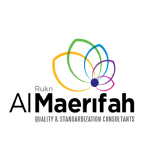Importance of Food Safety
Food safety is a vital aspect of public health that affects every individual, community, and nation. The process of ensuring food is free from contaminants, properly handled, and safely consumed is crucial to preventing foodborne illnesses and promoting overall well-being. In today’s interconnected world, where food products are transported across vast distances and shared across cultures, food safety has become more complex and more critical than ever. This blog delves into the importance of food safety, the potential hazards associated with unsafe food, key food safety practices, international standards, and how institutions like almaerifah play a significant role in raising food safety standards through comprehensive training and certifications.
Understanding Food Safety
Food safety encompasses all practices used to keep food safe for consumption. It involves a combination of proper handling, preparation, and storage of food to prevent contamination and ensure that food does not cause harm to consumers. The goal is to eliminate risks associated with biological, chemical, and physical hazards in food.
Key principles of food safety include:
Cleaning: Keeping hands, surfaces, and utensils clean to prevent contamination.
Cooking: Heating food to appropriate temperatures to kill harmful microorganisms.
Chilling: Storing food at safe temperatures to slow bacterial growth.
Cross-contamination prevention: Avoiding the transfer of harmful microorganisms from one food product to another.
The Global Impact of Foodborne Illnesses
The World Health Organization (WHO) estimates that every year, around 600 million people—almost 1 in 10 people globally—fall ill after consuming contaminated food, and 420,000 die due to foodborne diseases. The consequences of unsafe food can be devastating, especially for vulnerable groups such as children, pregnant women, the elderly, and individuals with weakened immune systems.
Foodborne illnesses not only impact public health but also have economic implications. They can lead to medical costs, productivity loss, trade restrictions, and damage to a company’s or country’s reputation. Countries with poor food safety systems are less likely to export food products, limiting economic opportunities.
Common Food Safety Hazards
Food safety hazards fall into three main categories:
Biological Hazards: These include bacteria (e.g., Salmonella, E. coli), viruses (e.g., Norovirus, Hepatitis A), and parasites. Biological hazards are the most common causes of foodborne illness.
Chemical Hazards: These include contaminants such as pesticides, food additives, cleaning agents, and toxins that can be harmful if ingested.
Physical Hazards: Foreign objects like glass shards, metal fragments, or plastic pieces that can cause injury or illness if consumed.
Key Food Safety Practices in the Food Industry
To ensure food safety, businesses involved in food production, processing, handling, and distribution must adhere to strict safety protocols. These include:
Good Manufacturing Practices (GMP): Guidelines that ensure products are consistently produced and controlled according to quality standards.
Hazard Analysis and Critical Control Points (HACCP): A systematic approach to identifying, evaluating, and controlling food safety hazards.
Standard Operating Procedures (SOPs): Detailed instructions to achieve uniformity in performing specific functions.
Traceability Systems: The ability to track any food product through all stages of production, processing, and distribution.
Role of Government and International Standards
Governments play a crucial role in food safety through regulation, enforcement, and public awareness campaigns. In the UAE, for example, the Dubai Municipality is actively involved in food safety inspection and regulation.
International organizations also establish food safety standards and guidelines, such as:
Codex Alimentarius Commission: Developed by the FAO and WHO, Codex standards help ensure food safety and promote fair trade.
ISO 22000: An international standard that specifies requirements for a food safety management system.
Global Food Safety Initiative (GFSI): A collaboration between retailers and manufacturers to ensure food safety along the supply chain.
Technology and Innovation in Food Safety
Modern technology plays an increasingly important role in enhancing food safety. Innovations include:
Blockchain Technology: Provides secure, transparent tracking of food products across the supply chain.
Internet of Things (IoT): Devices that monitor temperature, humidity, and other conditions in real-time.
Artificial Intelligence (AI): Predictive analytics for food safety risk assessment.
Rapid Testing Methods: Tools that allow for quick detection of contaminants.
These technological advancements help food businesses quickly identify and respond to potential hazards, reducing the risk of foodborne illness.
Food Safety Culture
A strong food safety culture within an organization ensures that all employees understand the importance of food safety and are committed to upholding high standards. Building this culture involves:
Regular training and education
Clear communication of food safety policies
Leadership commitment
Employee engagement and accountability
Consumer Responsibility in Food Safety
While food producers and regulators have significant responsibilities, consumers also play a vital role in food safety. Safe food handling at home includes:
Washing hands and surfaces often
Avoiding cross-contamination
Cooking food to safe temperatures
Refrigerating promptly
Public awareness campaigns and consumer education can significantly reduce the incidence of foodborne illnesses.
Almaerifah’s Role in Promoting Food Safety
Food safety is a shared responsibility that requires coordinated efforts from governments, the food industry, and consumers. In a rapidly evolving food landscape, staying informed and trained on best practices is crucial.
Almaerifah is at the forefront of food safety education in the UAE. As a leading institution approved by the Dubai Municipality, Almaerifah offers comprehensive training programs tailored to the needs of the food industry. Their courses include:
Basic and Advanced Food Safety Training: For food handlers, supervisors, and managers
HACCP Training: Covering principles and implementation of hazard analysis and critical control points
ISO Certification Training: Including ISO 22000 and other food safety management systems
Customized Workshops and Seminars: Addressing specific challenges faced by food businesses
By equipping professionals with the knowledge and skills needed to maintain the highest standards of food safety, Almaerifah contributes to a healthier, safer food environment for everyone.
To learn more or enroll in a course, visit Almaerifah’s official website and take the first step toward excellence in food safety.


